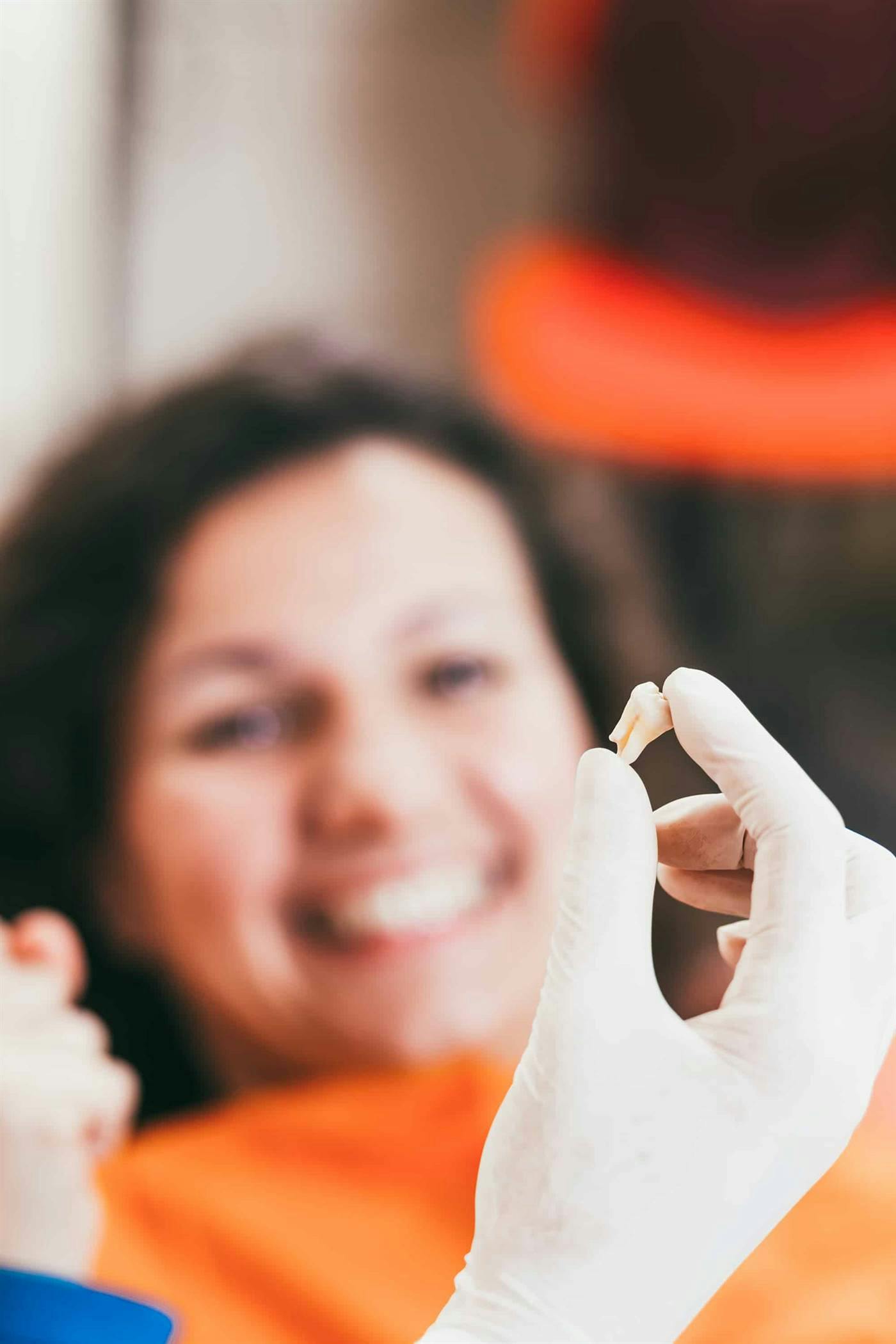Tooth Extraction

Opening Hours
Monday
9.00 am - 6.00 pm
Tuesday
9.00 am - 6.00 pm
Wednesday
8.00 am - 6.00 pm
Thursday
9.00 am - 6.00 pm
Friday
9.00 am - 6.00 pm
Saturday
9.00 am - 4.00 pm
Sunday
Closed
Tooth Extraction
What Is It?
Tooth extraction is the removal of a tooth from its socket in the bone.
What It’s Used For
If a tooth has been broken or damaged by decay, Dr Debbie Chiu will try to fix it with a filling, crown or other treatment. Sometimes, though, there’s too much damage for the tooth to be repaired. In this case, the tooth needs to be extracted. A very loose tooth also will require extraction if it can’t be saved, even with bone replacement surgery (bone graft).
Here are other reasons:
- Some people have extra teeth that block other teeth from coming in.
- Sometimes baby teeth don't fall out in time to allow the permanent teeth to come in.
- People getting braces may need teeth extracted to create room for the teeth that are being moved into place.
- People receiving radiation to the head and neck may need to have teeth in the field of radiation extracted.
- People receiving cancer drugs may develop infected teeth because these drugs weaken the immune system. Infected teeth may need to be extracted.
- Some teeth may need to be extracted if they could become a source of infection after an organ transplant. People with organ transplants have a high risk of infection because they must take drugs that decrease or suppress the immune system.
- Wisdom teeth, also called third molars, are often extracted either before or after they come in. They commonly come in during the late teens or early 20s. They need to be removed if they are decayed, cause pain or have a cyst or infection. These teeth often get stuck in the jaw (impacted) and do not come in. This can irritate the gum, causing pain and swelling. In this case, the tooth must be removed. If you need all four wisdom teeth removed, they are usually taken out at the same time.
If you expect to have treatment with intravenous drugs called bisphosphonates for a medical condition, be sure to see your dentist first. If any teeth need to be extracted, this should be done before your drug treatment begins. Having a tooth extraction after bisphosphonate treatment increases the risk of osteonecrosis (death of bone) in the jaw.
Preparation
Dr Debbie Chiu will take an X-ray of the area to help plan the best way to remove the tooth. Be sure to provide your full medical and dental history and a list of all medicines you take. This should include both prescription and over-the-counter drugs, vitamins and supplements.
If you are having wisdom teeth removed, you may have a panoramic X-ray. This X-ray takes a picture of all of your teeth at once. It can show several things that help to guide an extraction:
- The relationship of your wisdom teeth to your other teeth.
- The upper teeth's relationship to your sinuses
- The lower teeth's relationship to a nerve in the jawbone that gives feeling to your lower jaw, lower teeth, lower lip and chin. This nerve is called the inferior alveolar nerve.
- Any infections, tumours or bone disease that may be present.
Risks
A problem called a dry socket develops in about 3% to 4% of all extractions. This occurs when a blood clot doesn’t form in the hole or the blood clot breaks off or breaks down too early.
In a dry socket, the underlying bone is exposed to air and food. This can be very painful and can cause a bad odor or taste. Typically, dry sockets begin to cause pain the third day after surgery.
Dry socket occurs up to 30% of the time when impacted teeth are removed. It is also more likely after difficult extractions. Smokers and women who take birth control pills are more likely to have a dry socket. Smoking on the day of surgery further increases the risk. A dry socket needs to be treated with a medicated dressing to stop the pain and encourage the area to heal.
Opening Hours
Monday
9.00 am - 6.00 pm
Tuesday
9.00 am - 6.00 pm
Wednesday
8.00 am - 6.00 pm
Thursday
9.00 am - 6.00 pm
Friday
9.00 am - 6.00 pm
Saturday
9.00 am - 4.00 pm
Sunday
Closed
